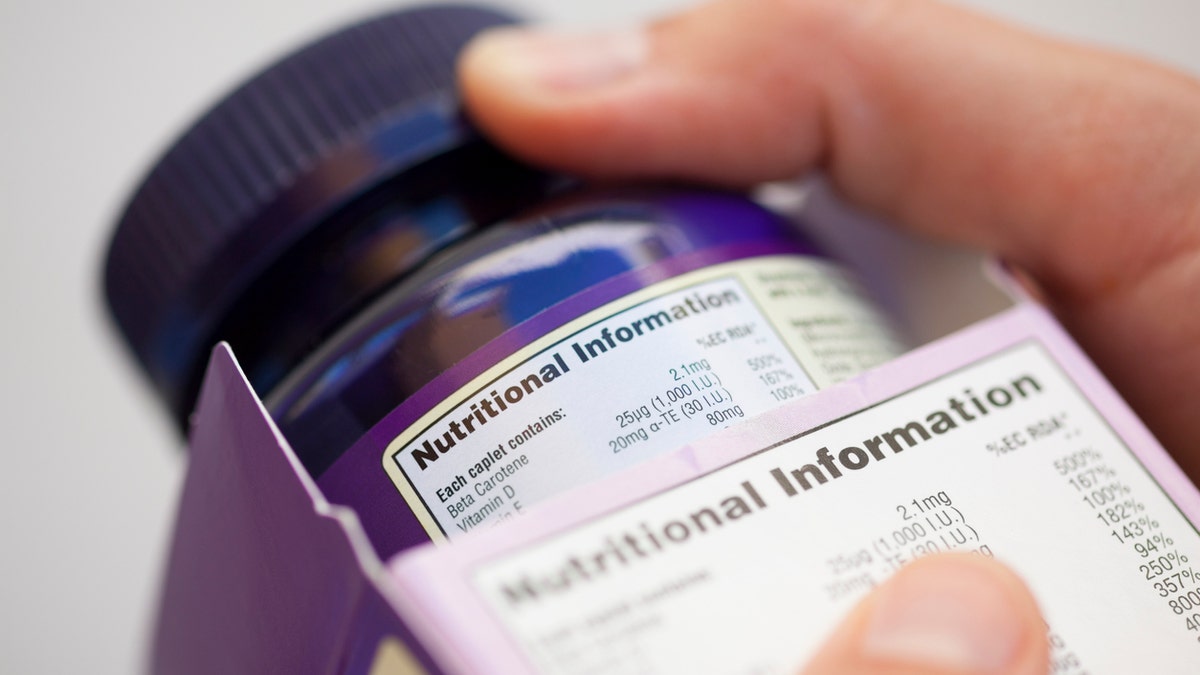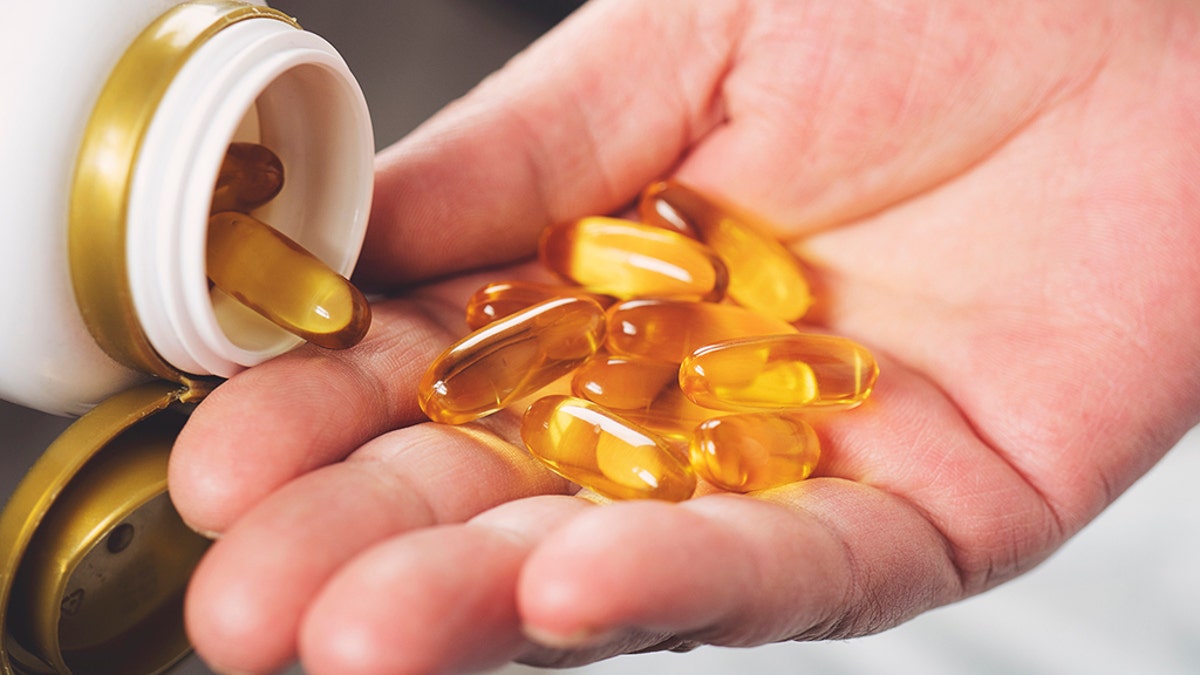Fox News Flash top headlines for September 23
Fox News Flash top headlines are here. Check out what's clicking on Foxnews.com.
Taking prenatal vitamins when not pregnant is a regimen some women swear by for health and beauty benefits, but whether the technique is a safe thing to do is not clear-cut.
Prenatal vitamins typically contain folic acid, a derivative of vitamin B, which helps to prevent brain and spine birth defects in babies, according to the U.S. Food and Drug Administration (FDA).
The Centers for Disease Control and Prevention recommends all women of reproductive age take 400 micrograms of folic acid each day, but the health agency doesn't say the daily serving has to come from a prenatal supplement.
WOMAN, 22, WHO SAYS GYNECOLOGIST DENIED HER A TUBE-TYING PROCEDURE, SPEAKS OUT
Jeff Gladd of Fort Wayne, Indiana, chief medical officer and private practice integrative medicine doctor at Fullscript, an online supplement dispensary, told Fox News Digital that women who are not pregnant generally benefit from taking prenatal vitamins as their multivitamin.

Pregnant and nonpregnant women can receive benefits from dietary supplements. (iStock)
"There are some caveats they should be aware of which can make prenatals an advantage for some that are not pregnant while being a disadvantage to others," Gladd said. "Knowing one's nutrient needs more in-depth with regular blood work is often the differentiator."
Prenatal vitamins tend to "beyond a general multivitamin" because "pregnant women often need additional support" for their babies, according to Gladd.
The vitamins formulated for pregnant women are high in iron, folic acid (usually in the form of methylfolate) and omega-3 fatty acids.
"[These vitamins and minerals] are important for both women and men to consider supplementally, so typically are not a reason one should avoid a prenatal," Gladd said.
Iron benefits and detriments
Pregnant women usually require more iron and prenatal vitamins often offer support in this area, Gladd said.
"Iron is not always needed by a woman who is not pregnant, and it is one of those nutrients you definitely do not want excess amounts of," he continued.
HOW TO WEAR SUNSCREEN THE RIGHT WAY: YOUR GUIDE TO SPF
At the same, iron in prenatal vitamins could offer a variety of benefits to nonpregnant women who are deficient in the mineral, according to Gladd.

Iron is a mineral that's commonly found in daily multivitamins. (iStock)
Gladd noted that iron deficiencies can be caused by regular blood loss through menstruation, diets low in red meat or common acid-suppressing medications that can potentially decrease iron absorption.
"This fine balance of not wanting too much or too little iron is why I so often measure my patients' iron and ferritin – a stored form of iron – levels with bloodwork to determine their daily iron needs and whether or not a prenatal vitamin is appropriate for them," Gladd said.
Folic acid benefits and detriments
Gladd told Fox News Digital that folic acid and vitamin B9 helps to prevent neural tube defects of the spinal cord in developing fetuses, and pregnant women are usually recommended a minimum dose of 400 micrograms per day.
"This level of folic acid is fairly common in non-prenatal multivitamins, so it's often not a concern [for nonpregnant women to take]," Gladd said.
CLICK HERE TO GET THE FOX NEWS APP
Folic acid can be taken if a person has a vitamin B deficiency that causes certain types of anemia, according to MedlinePlus, an online medical information service produced by the United States National Library of Medicine.

Folic acid is a vitamin B derivative that can be found in prenatal and daily multivitamins. (istock)
"Take folic acid exactly as directed," MedlinePlus wrote in a folic acid guide. "Do not take more or less of it or take it more often than prescribed by your doctor."
The FDA warns that high intakes of folic acid could pose potential health risks, though the risks are largely unknown since it requires more research.
FOLLOW US ON FACEBOOK FOR MORE FOX LIFESTYLE NEWS
"FDA itself limited the folic acid content of fortified foods, formulas, and non-prescription vitamin supplements to no more than 1 mg. because it was known that more than 5 mg. a day can mask vitamin B12 deficiency," the FDA wrote in a Folic Acid Fortification: Fact and Folly report.
Omega-3 fatty acid benefits and detriments
Omega-3 fatty acids are an essential nutrient for all people, but women can benefit from taking these polyunsaturated fats whether they plan on getting pregnant or not.
"Prenatal omega-3 fatty acid intake is growing in its importance thanks to the research," Gladd told Fox News Digital. "It is best for any reproductive-aged female to be getting this additional folate support in case of pregnancy as the need to baby is present so early on."
Gladd said prenatal vitamins that contain omega-3 fatty acid might help nonpregnant women who are deficient in the nutrient, especially if their diet is lacking an optimal supply.

Omega-3 fatty acids are polyunsaturated fats that can found in foods and supplements. (iStock)
Omega-3 deficiencies can cause rough, scaly skin and dermatitis, according to the National Institute of Health (NIH): Office of Dietary Supplements.
The NIH recommends teenage girls and women consume 1.1 grams of Omega-3 in the form of alpha-linolenic acid. Pregnant teens and women should consume 1.4 grams.
CLICK HERE TO SIGN UP FOR OUR LIFESTYLE NEWSLETTER
Ingesting too much Omega-3 fatty acid could pose a potential risk for people who have been prescribed a blood thinning medication, the NIH reports.
The FDA recommends consulting a doctor before taking any dietary supplement.

